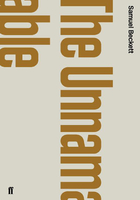It was about eleven o'clock at night. Gondy had not walked a hundred steps ere he perceived the strange change which had been made in the streets of Paris.
The whole city seemed peopled with fantastic beings; silent shadows were seen unpaving the streets and others dragging and upsetting great wagons, whilst others again dug ditches large enough to ingulf whole regiments of horsemen. These active beings flitted here and there like so many demons completing some unknown labor; these were the beggars of the Court of Miracles—the agents of the giver of holy water in the Square of Saint Eustache, preparing barricades for the morrow.
Gondy gazed on these deeds of darkness, on these nocturnal laborers, with a kind of fear; he asked himself, if, after having called forth these foul creatures from their dens, he should have the power of making them retire again. He felt almost inclined to cross himself when one of these beings happened to approach him. He reached the Rue Saint Honore and went up it toward the Rue de la Ferronnerie; there the aspect changed; here it was the tradesmen who were running from shop to shop; their doors seemed closed like their shutters, but they were only pushed to in such a manner as to open and allow the men, who seemed fearful of showing what they carried, to enter, closing immediately. These men were shopkeepers, who had arms to lend to those who had none.
One individual went from door to door, bending under the weight of swords, guns, muskets and every kind of weapon, which he deposited as fast as he could. By the light of a lantern the coadjutor recognized Planchet.
The coadjutor proceeded onward to the quay by way of the Rue de la Monnaie; there he found groups of bourgeois clad in black cloaks or gray, according as they belonged to the upper or lower bourgeoisie. They were standing motionless, while single men passed from one group to another. All these cloaks, gray or black, were raised behind by the point of a sword, or before by the barrel of an arquebuse or a musket.
On reaching the Pont Neuf the coadjutor found it strictly guarded and a man approached him.
"Who are you?" asked the man. "I do not know you for one of us."
"Then it is because you do not know your friends, my dear Monsieur Louvieres," said the coadjutor, raising his hat.
Louvieres recognized him and bowed.
Gondy continued his way and went as far as the Tour de Nesle. There he saw a lengthy chain of people gliding under the walls. They might be said to be a procession of ghosts, for they were all wrapped in white cloaks. When they reached a certain spot these men appeared to be annihilated, one after the other, as if the earth had opened under their feet. Gondy, edged into a corner, saw them vanish from the first until the last but one. The last raised his eyes, to ascertain, doubtless, that neither his companions nor himself had been watched, and, in spite of the darkness, he perceived Gondy. He walked straight up to him and placed a pistol to his throat.
"Halloo! Monsieur de Rochefort," said Gondy, laughing, "are you a boy to play with firearms?"
Rochefort recognized the voice.
"Ah, it is you, my lord!" said he.
"The very same. What people are you leading thus into the bowels of the earth?"
"My fifty recruits from the Chevalier d'Humieres, who are destined to enter the light cavalry and who have only received as yet for their equipment their white cloaks."
"And where are you going?"
"To the house of one of my friends, a sculptor, only we enter by the trap through which he lets down his marble."
"Very good," said Gondy, shaking Rochefort by the hand, who descended in his turn and closed the trap after him.
It was now one o'clock in the morning and the coadjutor returned home. He opened a window and leaned out to listen. A strange, incomprehensible, unearthly sound seemed to pervade the whole city; one felt that something unusual and terrible was happening in all the streets, now dark as ocean's most unfathomable caves. From time to time a dull sound was heard, like that of a rising tempest or a billow of the sea; but nothing clear, nothing distinct, nothing intelligible; it was like those mysterious subterraneous noises that precede an earthquake.
The work of revolt continued the whole night thus. The next morning, on awaking, Paris seemed to be startled at her own appearance. It was like a besieged town. Armed men, shouldering muskets, watched over the barricades with menacing looks; words of command, patrols, arrests, executions, even, were encountered at every step. Those bearing plumed hats and gold swords were stopped and made to cry, "Long live Broussel!" "Down with Mazarin!" and whoever refused to comply with this ceremony was hooted at, spat upon and even beaten. They had not yet begun to slay, but it was well felt that the inclination to do so was not wanting.
The barricades had been pushed as far as the Palais Royal. From the Rue de Bons Enfants to that of the Ferronnerie, from the Rue Saint Thomas-du-Louvre to the Pont Neuf, from the Rue Richelieu to the Porte Saint Honore, there were more than ten thousand armed men; those who were at the front hurled defiance at the impassive sentinels of the regiment of guards posted around the Palais Royal, the gates of which were closed behind them, a precaution which made their situation precarious. Among these thousands moved, in bands numbering from one hundred to two hundred, pale and haggard men, clothed in rags, who bore a sort of standard on which was inscribed these words: "Behold the misery of the people!" Wherever these men passed, frenzied cries were heard; and there were so many of these bands that the cries were to be heard in all directions.
The astonishment of Mazarin and of Anne of Austria was great when it was announced to them that the city, which the previous evening they had left entirely tranquil, had awakened to such feverish commotion; nor would either the one or the other believe the reports that were brought to them, declaring they would rather rely on the evidence of their own eyes and ears. Then a window was opened and when they saw and heard they were convinced.
Mazarin shrugged his shoulders and pretended to despise the populace; but he turned visibly pale and ran to his closet, trembling all over, locked up his gold and jewels in his caskets and put his finest diamonds on his fingers. As for the queen, furious, and left to her own guidance, she went for the Marechal de la Meilleraie and desired him to take as many men as he pleased and to go and see what was the meaning of this pleasantry.
The marshal was ordinarily very adventurous and was wont to hesitate at nothing; and he had that lofty contempt for the populace which army officers usually profess. He took a hundred and fifty men and attempted to go out by the Pont du Louvre, but there he met Rochefort and his fifty horsemen, attended by more than five hundred men. The marshal made no attempt to force that barrier and returned up the quay. But at Pont Neuf he found Louvieres and his bourgeois. This time the marshal charged, but he was welcomed by musket shots, while stones fell like hail from all the windows. He left there three men.
He beat a retreat toward the market, but there he met Planchet with his halberdiers; their halberds were leveled at him threateningly. He attempted to ride over those gray cloaks, but the gray cloaks held their ground and the marshal retired toward the Rue Saint Honore, leaving four of his guards dead on the field of battle.
The marshal then entered the Rue Saint Honore, but there he was opposed by the barricades of the mendicant of Saint Eustache. They were guarded, not only by armed men, but even by women and children. Master Friquet, the owner of a pistol and of a sword which Louvieres had given him, had organized a company of rogues like himself and was making a tremendous racket.
The marshal thought this barrier not so well fortified as the others and determined to break through it. He dismounted twenty men to make a breach in the barricade, whilst he and others, remaining on their horses, were to protect the assailants. The twenty men marched straight toward the barrier, but from behind the beams, from among the wagon-wheels and from the heights of the rocks a terrible fusillade burst forth and at the same time Planchet's halberdiers appeared at the corner of the Cemetery of the Innocents, and Louvieres's bourgeois at the corner of the Rue de la Monnaie.
The Marechal de la Meilleraie was caught between two fires, but he was brave and made up his mind to die where he was. He returned blow for blow and cries of pain began to be heard in the crowd. The guards, more skillful, did greater execution; but the bourgeois, more numerous, overwhelmed them with a veritable hurricane of iron. Men fell around him as they had fallen at Rocroy or at Lerida. Fontrailles, his aide-de-camp, had an arm broken; his horse had received a bullet in his neck and he had difficulty in controlling him, maddened by pain. In short, he had reached that supreme moment when the bravest feel a shudder in their veins, when suddenly, in the direction of the Rue de l'Arbre-Sec, the crowd opened, crying: "Long live the coadjutor!" and Gondy, in surplice and cloak, appeared, moving tranquilly in the midst of the fusillade and bestowing his benedictions to the right and left, as undisturbed as if he were leading a procession of the Fete Dieu.
All fell to their knees. The marshal recognized him and hastened to meet him.
"Get me out of this, in Heaven's name!" he said, "or I shall leave my carcass here and those of all my men."
A great tumult arose, in the midst of which even the noise of thunder could not have been heard. Gondy raised his hand and demanded silence. All were still.
"My children," he said, "this is the Marechal de la Meilleraie, as to whose intentions you have been deceived and who pledges himself, on returning to the Louvre, to demand of the queen, in your name, our Broussel's release. You pledge yourself to that, marshal?" added Gondy, turning to La Meilleraie.
"Morbleu!" cried the latter, "I should say that I do pledge myself to it! I had no hope of getting off so easily."
"He gives you his word of honor," said Gondy.
The marshal raised his hand in token of assent.
"Long live the coadjutor!" cried the crowd. Some voices even added: "Long live the marshal!" But all took up the cry in chorus: "Down with Mazarin!"
The crowd gave place, the barricade was opened, and the marshal, with the remnant of his company, retreated, preceded by Friquet and his bandits, some of them making a presence of beating drums and others imitating the sound of the trumpet. It was almost a triumphal procession; only, behind the guards the barricades were closed again. The marshal bit his fingers.
In the meantime, as we have said, Mazarin was in his closet, putting his affairs in order. He called for D'Artagnan, but in the midst of such tumult he little expected to see him, D'Artagnan not being on service. In about ten minutes D'Artagnan appeared at the door, followed by the inseparable Porthos.
"Ah, come in, come in, Monsieur d'Artagnan!" cried the cardinal, "and welcome your friend too. But what is going on in this accursed Paris?"
"What is going on, my lord? nothing good," replied D'Artagnan, shaking his head. "The town is in open revolt, and just now, as I was crossing the Rue Montorgueil with Monsieur du Vallon, who is here, and is your humble servant, they wanted in spite of my uniform, or perhaps because of my uniform, to make us cry 'Long live Broussel!' and must I tell you, my lord what they wished us to cry as well?"
"Speak, speak."
"'Down with Mazarin!' I'faith, the treasonable word is out."
Mazarin smiled, but became very pale.
"And you did cry?" he asked.
"I'faith, no," said D'Artagnan; "I was not in voice; Monsieur du Vallon has a cold and did not cry either. Then, my lord——"
"Then what?" asked Mazarin.
"Look at my hat and cloak."
And D'Artagnan displayed four gunshot holes in his cloak and two in his beaver. As for Porthos's coat, a blow from a halberd had cut it open on the flank and a pistol shot had cut his feather in two.
"Diavolo!" said the cardinal, pensively gazing at the two friends with lively admiration; "I should have cried, I should."
At this moment the tumult was heard nearer.
Mazarin wiped his forehead and looked around him. He had a great desire to go to the window, but he dared not.
"See what is going on, Monsieur D'Artagnan," said he.
D'Artagnan went to the window with his habitual composure. "Oho!" said he, "what is this? Marechal de la Meilleraie returning without a hat—Fontrailles with his arm in a sling—wounded guards—horses bleeding; eh, then, what are the sentinels about? They are aiming—they are going to fire!"
"They have received orders to fire on the people if the people approach the Palais Royal!" exclaimed Mazarin.
"But if they fire, all is lost!" cried D'Artagnan.
"We have the gates."
"The gates! to hold for five minutes—the gates, they will be torn down, twisted into iron wire, ground to powder! God's death, don't fire!" screamed D'Artagnan, throwing open the window.
In spite of this recommendation, which, owing to the noise, could scarcely have been heard, two or three musket shots resounded, succeeded by a terrible discharge. The balls might be heard peppering the facade of the Palais Royal, and one of them, passing under D'Artagnan's arm, entered and broke a mirror, in which Porthos was complacently admiring himself.
"Alack! alack!" cried the cardinal, "a Venetian glass!"
"Oh, my lord," said D'Artagnan, quietly shutting the window, "it is not worth while weeping yet, for probably an hour hence there will not be one of your mirrors remaining in the Palais Royal, whether they be Venetian or Parisian."
"But what do you advise, then?" asked Mazarin, trembling.
"Eh, egad, to give up Broussel as they demand! What the devil do you want with a member of the parliament? He is of no earthly use to anybody."
"And you, Monsieur du Vallon, is that your advice? What would you do?"
"I should give up Broussel," said Porthos.
"Come, come with me, gentlemen!" exclaimed Mazarin. "I will go and discuss the matter with the queen."
He stopped at the end of the corridor and said:
"I can count upon you, gentlemen, can I not?"
"We do not give ourselves twice over," said D'Artagnan; "we have given ourselves to you; command, we shall obey."
"Very well, then," said Mazarin; "enter this cabinet and wait till I come back."
And turning off he entered the drawing-room by another door.















